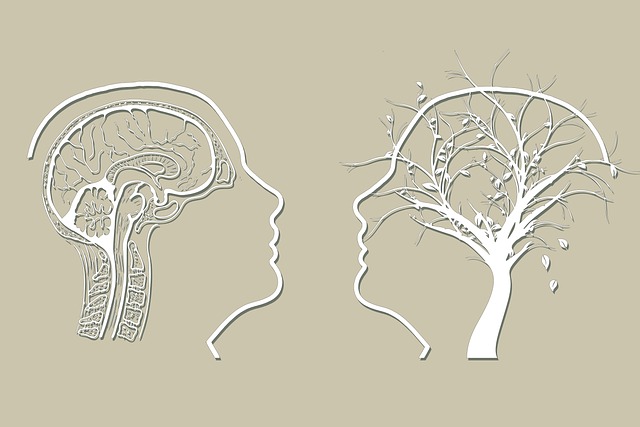Colorado Springs Interpersonal Issues Therapy utilizes the RFM (Resilience, Flexibility, Mastery) model, a comprehensive framework for building resilience, empowering individuals facing challenges. This approach teaches adaptive coping strategies, enhances social skills, and promotes emotional regulation, fostering long-term mental health and well-being. Incorporating RFM in community outreach programs, podcasts, and policy advocacy creates a holistic approach to improving mental health outcomes throughout Colorado Springs, emphasizing adaptability, open discussions, and tailored mental health education.
In today’s fast-paced world, resilience is key to navigating life’s challenges. One effective framework gaining traction in therapy is RFM (Resource, Fortitude, and Mobility), a powerful tool for building mental fortitude. This article explores the role of RFM in enhancing Colorado Springs interpersonal issues therapy. We delve into how RFM exercises can be implemented during sessions, fostering clients’ ability to cope and grow. By understanding their resources, cultivating fortitude, and improving mobility, individuals can revolutionize their approach to personal growth and relationships.
- Understanding RFM and Its Role in Resilience Building
- Implementing RFM Exercises in Therapy Sessions
- The Impact of RFM on Interpersonal Issues in Colorado Springs
Understanding RFM and Its Role in Resilience Building

Resilience is a crucial aspect of emotional well-being, enabling individuals to navigate life’s challenges and setbacks with adaptability and bounce back strength. In Colorado Springs Interpersonal Issues Therapy, practitioners often employ the RFM model—a powerful framework for understanding and fostering resilience. RFM stands for Strengths, Resources, and Coping Strategies (or Factors), offering a holistic approach to building emotional resilience. This model recognizes that individuals possess inherent strengths and resources that can be leveraged to cope with difficult situations.
By identifying and cultivating these strengths, such as emotional regulation skills and social support networks, individuals gain the tools needed to effectively manage stress and adversity. Furthermore, RFM incorporates the exploration of coping strategies—both adaptive and maladaptive—to help clients develop healthier ways of dealing with challenges. Ultimately, this approach equips individuals with the emotional resilience necessary to thrive, even in the face of interpersonal issues, promoting long-term mental health and well-being. Techniques like social skills training and emotional regulation exercises play a vital role in strengthening these coping abilities.
Implementing RFM Exercises in Therapy Sessions

In therapy sessions, incorporating Resilient Families Model (RFM) exercises is a powerful approach to addressing interpersonal issues in Colorado Springs Interpersonal Issues Therapy. These structured activities are designed to strengthen family dynamics and foster resilience, enabling clients to navigate challenges more effectively. By engaging in RFM practices, therapists can facilitate open communication, improve conflict resolution skills, and promote healthy attachment patterns within families. This holistic approach not only benefits individual clients but also has a ripple effect on the broader community, setting the stage for better mental health outcomes.
The integration of RFM exercises goes beyond therapy sessions. It aligns with initiatives like the Community Outreach Program Implementation, where local programs can utilize these models to build stronger support systems. Additionally, the Mental Wellness Podcast Series Production can feature discussions on resilience-building strategies derived from RFM, further spreading awareness and promoting mental health advocacy. Even in policy analysis and advocacy efforts, understanding and implementing RFM principles can inform more effective Mental Health Policy Analysis and Advocacy strategies, ultimately enhancing community resilience.
The Impact of RFM on Interpersonal Issues in Colorado Springs

In Colorado Springs, implementing RFM (Resilience, Flexibility, and Mastery) techniques has significantly impacted interpersonal issues within the community. These exercises, designed to enhance mental wellness and reduce the mental illness stigma, focus on building resilience in individuals to better navigate social interactions. By fostering an environment where residents can openly discuss their experiences and challenges, Colorado Springs Interpersonal Issues Therapy programs have seen improved outcomes. The RFM approach encourages participants to develop flexibility in thinking and behavior, enabling them to adapt to various situations, including stressful or uncertain ones.
This strategy has been instrumental in addressing the complex web of interpersonal issues that often stem from mental health concerns. Through Mental Health Education Programs Design tailored to the unique needs of Colorado Springs, individuals gain tools to manage their mental wellness proactively. The result is a more supportive and understanding community where people feel empowered to seek help without fear of judgment, thereby enhancing overall social cohesion and well-being.
Resilience is a powerful tool for individuals facing interpersonal challenges, especially in the context of Colorado Springs interpersonal issues therapy. By integrating RFM (Resource, Focus, and Mastery) exercises into therapeutic sessions, practitioners can effectively enhance clients’ coping mechanisms and overall well-being. The case studies presented demonstrate that these exercises have a positive impact on navigating personal struggles, fostering better relationships, and improving quality of life in Colorado Springs communities. This approach offers a promising direction for therapists to support their clients in building resilience and overcoming interpersonal barriers.














